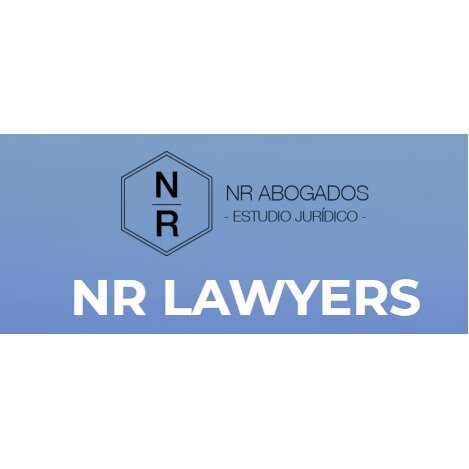Best Corporate Governance Lawyers in Argentina
Share your needs with us, get contacted by law firms.
Free. Takes 2 min.
Or refine your search by selecting a city:
List of the best lawyers in Argentina
About Corporate Governance Law in Argentina
Corporate governance refers to the set of rules, practices, and processes that direct and control how companies are managed and operated. In Argentina, corporate governance is particularly important due to the country’s vibrant business sector, growing international investments, and evolving regulatory requirements. Argentine corporate governance combines local business customs with international standards, especially for publicly traded companies. Good corporate governance is essential for ensuring transparency, accountability, and the long-term success of a company.
Why You May Need a Lawyer
Navigating corporate governance can be challenging, especially for business owners and company directors unfamiliar with the legal landscape in Argentina. You may need the help of a lawyer in several scenarios, such as:
- Setting up a company and drafting bylaws
- Ensuring compliance with local and international regulations
- Dealing with shareholder disputes or rights
- Conducting mergers, acquisitions, or company restructurings
- Implementing internal policies and ethical standards
- Preparing for or responding to audits and governmental inspections
- Managing director responsibilities and liabilities
- Navigating conflicts of interest within the company
Legal advice helps prevent costly mistakes and ensures your company operates within the law while protecting the interests of stakeholders.
Local Laws Overview
Corporate governance in Argentina is primarily governed by the Argentine General Corporations Law (Ley de Sociedades Comerciales, Law 19.550). This law outlines the obligations of directors, rights of shareholders, and reporting requirements for companies. Publicly traded companies must also comply with regulations from the Argentine Securities and Exchange Commission (Comisión Nacional de Valores, CNV), which incorporate additional governance standards to align with global best practices. Key elements include:
- Company structure requirements, such as board composition and duties
- Mandatory shareholders’ meetings and proper record-keeping
- Disclosure obligations regarding financial statements and significant company decisions
- Rules about conflicts of interest and related-party transactions
- Regulations for audit committees in listed companies
- Penalties for breaches of director duties, such as negligence or fraud
- Mechanisms for minority shareholder protection
- Anti-money laundering and anti-corruption compliance measures
Other relevant laws may also apply depending on the type of business and activity, such as the Capital Markets Law and the Anti-Corruption Law.
Frequently Asked Questions
What is the main law governing corporate governance in Argentina?
The Argentine General Corporations Law (Law 19.550) is the main law, complemented by regulations from the CNV for listed companies.
Who is responsible for corporate governance in an Argentine company?
The board of directors is primarily responsible for governance, although shareholders and managers also have specific roles and duties.
Are there special governance requirements for publicly traded companies?
Yes, publicly traded companies must meet additional requirements set by the CNV, including audit committees, higher disclosure standards, and stricter board independence rules.
What rights do minority shareholders have?
Minority shareholders have rights to information, participation in meetings, and protections against abusive conduct by majority holders, including the ability to challenge resolutions in court.
How are conflicts of interest handled?
Directors must disclose any conflict of interest, abstain from related decisions, and companies are required to document these cases in their records.
What are the main responsibilities of directors?
Directors must act with loyalty, diligence, and in the best interests of the company, avoiding self-dealing and disclosing potential conflicts of interest.
What penalties can directors face for breaches?
Directors can face civil and criminal liability, including fines, removal from office, and claims for damages if found liable for negligence or misconduct.
Are companies required to hold annual meetings?
Yes, all registered companies must hold annual shareholders’ meetings to approve financial statements, elect or re-elect board members, and discuss other key matters.
What is the role of an audit committee?
Audit committees provide oversight of financial reporting, internal controls, and the company’s relationship with external auditors, strengthening governance especially in publicly listed entities.
Can foreign shareholders participate in Argentine corporate governance?
Yes, foreign shareholders can participate on equal terms but must comply with local regulations, including registration and disclosure requirements.
Additional Resources
Knowledgeable guidance can be found through the following resources and organizations:
- Comisión Nacional de Valores (Argentine Securities and Exchange Commission)
- Inspección General de Justicia (Public Registry of Commerce supervision body)
- Instituto Argentino para el Gobierno Corporativo (Argentine Corporate Governance Institute)
- Local business associations such as the Argentine Chamber of Commerce
- Legal publications and bulletins by Argentine law firms and universities specializing in corporate law
Next Steps
If you believe you need legal assistance in the area of corporate governance, consider the following actions:
- Gather all relevant company documents, such as bylaws, shareholder agreements, and meeting reports
- Define your legal concerns or objectives as clearly as possible
- Contact a qualified lawyer or law firm with experience in corporate governance matters in Argentina
- Request a consultation to discuss your specific circumstances and receive tailored advice
- Follow up on legal advice and implement recommended changes or actions promptly to ensure compliance
Professional legal guidance will help your company avoid potential pitfalls and strengthen its governance structure for long-term success.
Lawzana helps you find the best lawyers and law firms in Argentina through a curated and pre-screened list of qualified legal professionals. Our platform offers rankings and detailed profiles of attorneys and law firms, allowing you to compare based on practice areas, including Corporate Governance, experience, and client feedback.
Each profile includes a description of the firm's areas of practice, client reviews, team members and partners, year of establishment, spoken languages, office locations, contact information, social media presence, and any published articles or resources. Most firms on our platform speak English and are experienced in both local and international legal matters.
Get a quote from top-rated law firms in Argentina — quickly, securely, and without unnecessary hassle.
Disclaimer:
The information provided on this page is for general informational purposes only and does not constitute legal advice. While we strive to ensure the accuracy and relevance of the content, legal information may change over time, and interpretations of the law can vary. You should always consult with a qualified legal professional for advice specific to your situation.
We disclaim all liability for actions taken or not taken based on the content of this page. If you believe any information is incorrect or outdated, please contact us, and we will review and update it where appropriate.
Browse corporate governance law firms by city in Argentina
Refine your search by selecting a city.

















